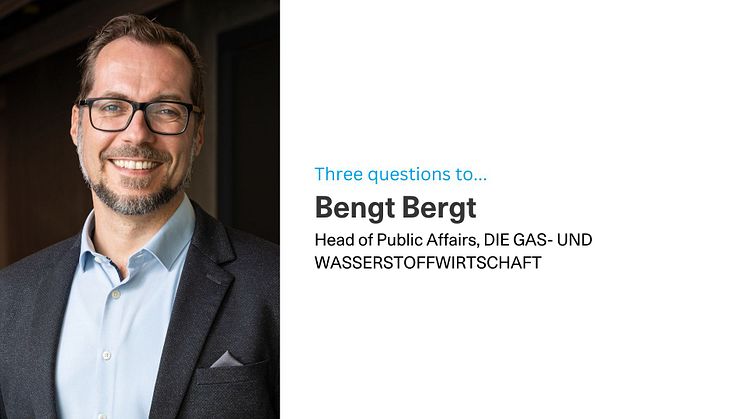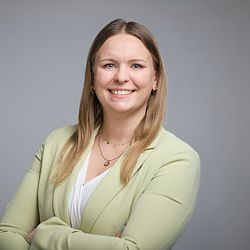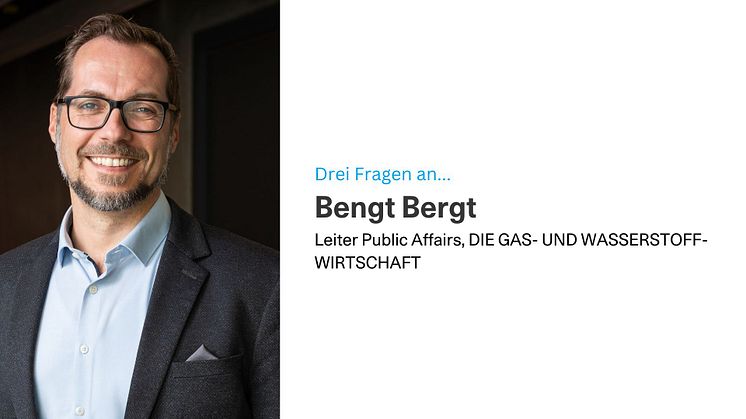
News -
Three Questions to Bengt Bergt, DIE GAS- UND WASSERSTOFFWIRTSCHAFT
Since June 1, 2025, Bengt Bergt has been Head of Public Affairs at DIE GAS- UND WASSERSTOFFWIRTSCHAFT. The former Member of the Bundestag (SPD) brings extensive experience from both political practice and the energy sector. From 2021 to 2025, Bergt served in the German Bundestag, where he was Deputy Energy Policy Spokesperson for the SPD parliamentary group. Prior to his time in parliament, the trained technical editor and experienced manager worked in the energy industry and mechanical engineering – with a clear focus on climate, energy, and structural transformation processes.
-
What particularly attracted you to this role?
The challenge of transformation. I’ve always been committed wherever there was something to change. When conditions worsened for employees at my previous company, I joined the works council and fought to preserve their jobs. When the entire industry came under pressure, I ran for the Bundestag to stand up for wind energy. Shortly after, Russia’s war of aggression against Ukraine began – and with it, the gas supply crisis. In that situation too, I was able to contribute to strengthening energy security.
What drives me is the opportunity to make tangible improvements: Today, employees have collective agreements, the wind industry has regained momentum, and the energy supply has remained stable despite all challenges – also because clear voices stepped up, took responsibility, and helped shape solutions. Now, once again, energy supply is facing major challenges. I’m convinced that if we act honestly, pragmatically, and solution-oriented, we can overcome them. That’s exactly what I want to contribute to in my new role.
-
What energy policy decisions do you currently consider most urgent?
We need auctions for secured capacity as soon as possible to ensure planning security and stable prices for German industry. The key to the future of our industrial base lies in a combination of H₂-ready gas-fired power plants, technology-neutral sector coupling, and a reliable ramp-up of the hydrogen supply – for example, through a green gas quota. This is the only way we can not only safeguard what we have but also actively develop our location with new climate technologies.
The spectrum ranges from intelligent grid control and expansion of electrolyzers to innovative areas such as carbon capture and the world’s most advanced power and gas grid components. That’s where the industrial future of Germany – and Europe – lies. We need to set the course in that direction now.
-
How can advocacy remain fact-based in polarized times?
With clarity, honesty, and integrity. Transparent communication makes you vulnerable – especially to ideologues with easy answers. But this very openness is essential and must not be lost. With composure and a strong team, it is possible to defend the space needed for fact-based debate.

